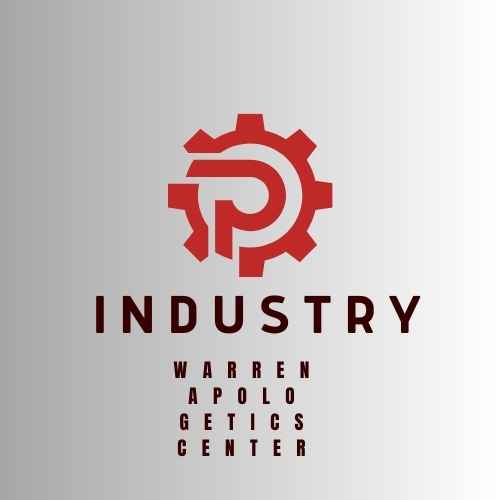
A Fanuc robotics systems integrator delivers end-to-end automation solutions that transform manufacturing operations through custom robotic implementations. These specialized partners provide comprehensive services spanning initial consultation and system design to installation, programming, training, and ongoing support. As the robotics market reaches unprecedented growth—projected to hit $178.7 billion by 2033 with a compound annual growth rate of 16.35%—manufacturers increasingly rely on expert integrators to navigate complex automation decisions and maximize their return on investment.
?How do systems integrators design custom robotic solutions
Systems integrators begin every project with thorough process analysis and feasibility studies. They examine current manufacturing workflows, identify bottlenecks, and determine optimal automation opportunities. This comprehensive evaluation considers factors such as production volumes, cycle times, quality requirements, and workplace safety concerns.
The design phase involves selecting appropriate robot models from Fanuc's extensive portfolio, which includes everything from compact collaborative robots to heavy-duty industrial systems capable of handling payloads up to 2,300 kilograms. Integrators match robot specifications to specific application requirements, considering reach, payload capacity, precision levels, and environmental conditions.
Advanced integrators utilize sophisticated simulation software to model proposed systems before physical implementation. This virtual testing validates robot movements, identifies potential conflicts, and optimizes cycle times. The simulation process reduces implementation risks and ensures systems meet performance expectations from day one.
?What industrial applications do Fanuc integrators specialize in
Material handling represents the largest application segment for robotic automation, encompassing pick-and-place operations, machine tending, packaging, and palletizing tasks. These applications leverage robots' consistent precision and tireless operation to maintain production flow while reducing labor costs and improving workplace safety.
Welding automation has become increasingly sophisticated, with Fanuc's Arc Mate series delivering exceptional precision for MIG, TIG, plasma, and laser welding applications. Modern welding robots incorporate advanced sensors and adaptive control systems that adjust parameters in real-time, ensuring consistent weld quality even with part variations. The automotive industry particularly benefits from these capabilities, using robotic welding for everything from body-in-white assembly to exhaust system fabrication.
Assembly operations have evolved beyond simple part insertion to complex multi-component assembly sequences. Today's collaborative robots work safely alongside human operators, combining robotic precision with human dexterity for optimal productivity. These systems excel in electronics manufacturing, where component placement accuracy directly impacts product quality and reliability.
?How do integrators ensure successful system implementation
Project management forms the backbone of successful robotic implementations. Professional integrators assign dedicated project managers who coordinate all aspects of system development, from initial design through final commissioning. This centralized approach ensures clear communication, maintains project timelines, and provides customers with regular progress updates.
Installation and commissioning require specialized expertise to integrate robotic systems with existing production equipment. Skilled technicians handle mechanical installation, electrical connections, and safety system integration while minimizing production disruptions. The commissioning process includes thorough testing of all system functions, safety protocols, and integration points.
Quality assurance protocols verify that completed systems meet all specified performance criteria. Integrators conduct extensive testing under actual production conditions, validating cycle times, accuracy levels, and system reliability. This comprehensive approach ensures systems deliver promised benefits from the moment they enter production service.
?What training and support services do integrators provide
Comprehensive operator training ensures manufacturing teams can effectively utilize new robotic systems. Training programs cover system operation, basic troubleshooting, routine maintenance procedures, and safety protocols. Many integrators offer both on-site training at customer facilities and classroom instruction at their own training centers.
Maintenance training extends beyond basic operation to include preventive maintenance schedules, component replacement procedures, and performance optimization techniques. This knowledge transfer enables manufacturing teams to maintain peak system performance while minimizing unplanned downtime.
Advanced programming training empowers customers to modify robot programs for new products or process changes. This capability provides operational flexibility and reduces dependence on external programming services for routine modifications.
?How do modern integrators incorporate advanced technologies
Artificial intelligence integration has revolutionized robotic capabilities, enabling systems to adapt to variations in part placement, environmental conditions, and process parameters. AI-powered vision systems can identify and handle parts with complex geometries or varying orientations, expanding automation possibilities to previously challenging applications.
Industrial Internet of Things (IIoT) connectivity transforms isolated robotic cells into networked manufacturing assets. Connected systems provide real-time performance data, predictive maintenance insights, and production analytics that optimize overall equipment effectiveness. This connectivity enables manufacturers to implement Industry 4.0 principles and achieve smart factory capabilities.
Vision system integration adds sophisticated inspection and guidance capabilities to robotic systems. Modern vision solutions can perform quality inspection, guide robot movements for precise part handling, and adapt to product variations without manual programming changes. These capabilities are particularly valuable in electronics manufacturing and medical device production where quality standards are exceptionally demanding.
?What industries benefit most from robotic integration services
The automotive industry remains the largest consumer of industrial robotics, with 30% of all robot installations globally occurring in this sector. Automotive applications span the entire production process, from stamping and welding operations to final assembly and quality inspection. The industry's emphasis on quality, consistency, and high-volume production makes it an ideal match for robotic automation capabilities.
Electronics manufacturing has embraced robotics for precise component handling, circuit board assembly, and product testing operations. The industry's requirements for microscopic precision and contamination-free environments align perfectly with robotic capabilities. Collaborative robots have proven particularly valuable in electronics assembly, where they work alongside skilled technicians to combine automation benefits with human expertise.
Food and beverage manufacturing increasingly relies on robotic solutions for packaging, palletizing, and material handling operations. These applications benefit from robots' consistent performance, hygienic operation, and ability to work in challenging environments such as freezers or high-temperature processing areas.
?How do integrators address safety and compliance requirements
Safety system design incorporates multiple layers of protection to ensure robotic systems operate safely around human workers. Professional integrators implement comprehensive safety strategies including physical barriers, light curtains, emergency stop systems, and collaborative robot technologies that can safely share workspace with operators.
Regulatory compliance ensures robotic installations meet all applicable safety standards and industry regulations. Experienced integrators maintain current knowledge of safety standards such as ISO 10218 for industrial robots and conduct thorough safety audits to verify compliance. This expertise is particularly critical in regulated industries such as pharmaceuticals and medical device manufacturing.
Risk assessment procedures identify potential hazards and implement appropriate mitigation strategies. Integrators conduct detailed hazard analysis for each application, considering factors such as robot movements, workspace layout, and human interaction requirements. This systematic approach ensures comprehensive safety coverage throughout the system lifecycle.
What factors determine robotic automation return on investment?
Labor cost reduction represents the most immediate and measurable benefit of robotic automation. Manufacturing operations in developed countries face increasing labor costs and skilled worker shortages, making robotic alternatives increasingly attractive. The International Federation of Robotics reports that demographic changes are already impacting labor markets in leading economies, with robots helping to address these challenges through consistent, reliable operation.
Quality improvement delivers significant long-term value through reduced defect rates, consistent product specifications, and enhanced customer satisfaction. Robotic systems eliminate human variability from manufacturing processes, ensuring every product meets exact specifications. This consistency is particularly valuable in precision manufacturing applications where quality deviations can result in costly rework or customer returns.
Throughput increases enable manufacturers to meet growing demand without proportional increases in facility size or workforce. Modern robotic systems can achieve cycle times that exceed human capabilities while maintaining consistent performance throughout extended production runs. This enhanced productivity directly translates to increased revenue potential and improved competitive positioning.
How do maintenance and support services ensure long-term success?
Preventive maintenance programs maximize system reliability and extend equipment life. Professional integrators establish comprehensive maintenance schedules that address all system components, from robot mechanisms to control systems and safety devices. Regular maintenance prevents unexpected failures and maintains peak system performance throughout the equipment lifecycle.
Remote monitoring capabilities enable proactive support and rapid response to operational issues. Advanced diagnostic systems continuously monitor robot performance parameters, identifying potential problems before they cause production disruptions. This predictive approach minimizes unplanned downtime and optimizes maintenance resource allocation.
Spare parts availability ensures rapid restoration of production capability in the event of component failures. Established integrators maintain comprehensive spare parts inventories and provide 24/7 access to critical components. Strategic partnerships with robot manufacturers ensure access to genuine parts and technical support resources.
Fanuc robotics systems integrators serve as essential partners in modern manufacturing automation, providing comprehensive services that transform production capabilities and drive competitive advantage. Their expertise spans from initial feasibility analysis through long-term system support, ensuring manufacturers achieve maximum value from their automation investments. As the global robotics market continues its rapid expansion, these specialized partners become increasingly valuable for manufacturers seeking to enhance productivity, improve quality, and maintain competitive positioning in dynamic markets.
The integration of advanced technologies such as artificial intelligence, IoT connectivity, and sophisticated vision systems has expanded the possibilities for robotic automation while increasing the complexity of successful implementation. Professional integrators bridge this complexity gap, delivering turnkey solutions that leverage cutting-edge capabilities while ensuring reliable, safe operation. For manufacturers considering robotic automation, partnering with an experienced Fanuc systems integrator represents the most effective path to successful implementation and long-term operational success.
This comprehensive approach to robotic integration—combining technical expertise, project management capabilities, and ongoing support services—positions manufacturers to fully capitalize on the transformative potential of modern robotic automation. As industry demands continue evolving toward greater flexibility, precision, and efficiency, these partnerships become even more critical for sustained manufacturing excellence and market competitiveness.
The future of manufacturing increasingly depends on sophisticated automation solutions that integrate seamlessly with existing operations while providing the adaptability to meet changing market demands. Fanuc robotics systems integrators stand at the forefront of this transformation, delivering the expertise and comprehensive services necessary to navigate the complex journey from manual operations to fully automated production excellence.
click here for more info: https://assatec.co.il/
